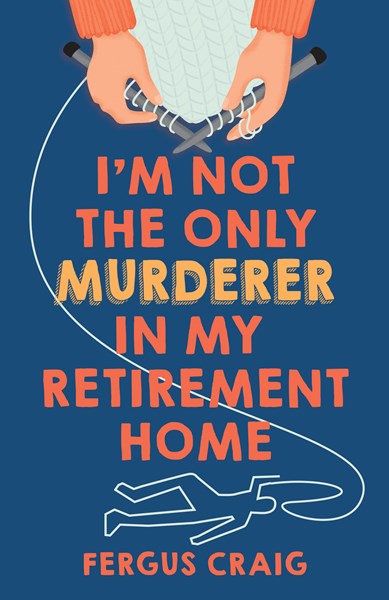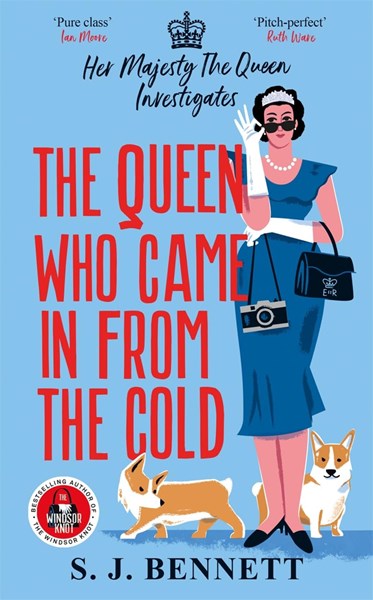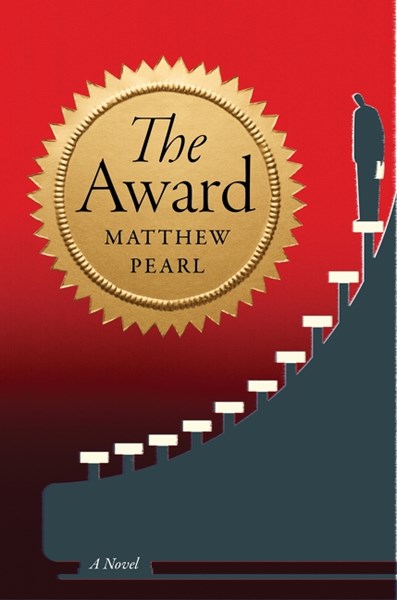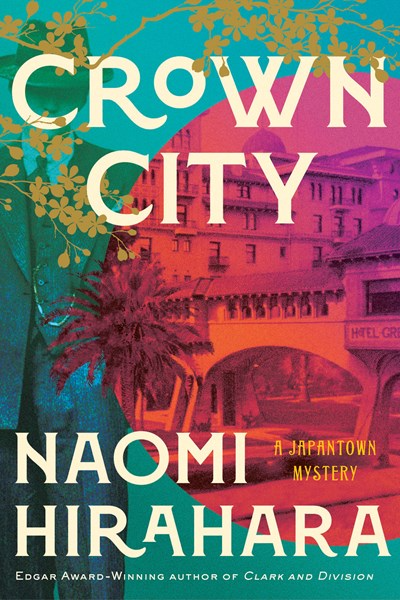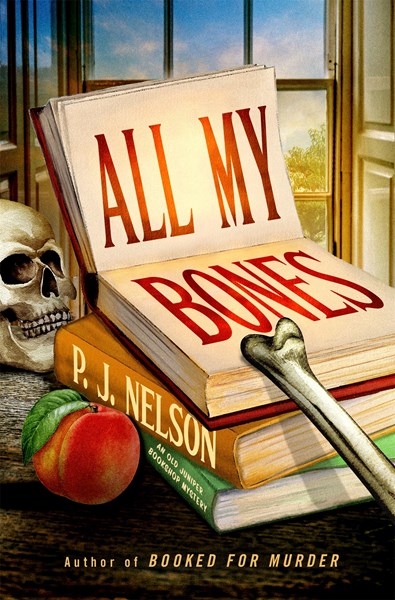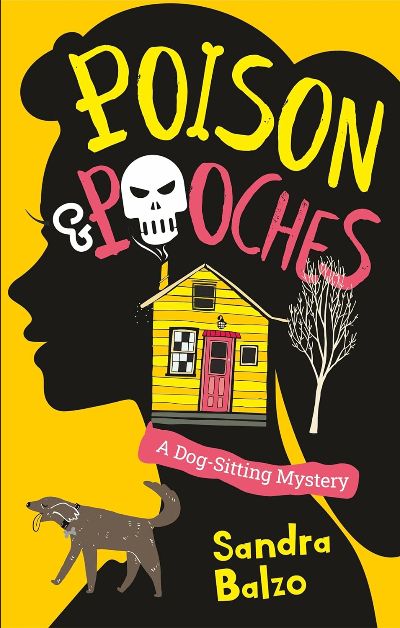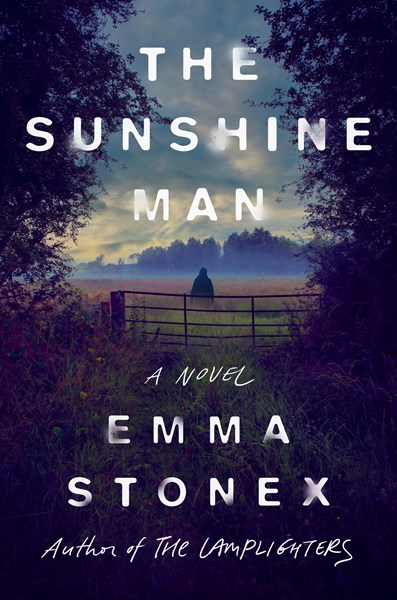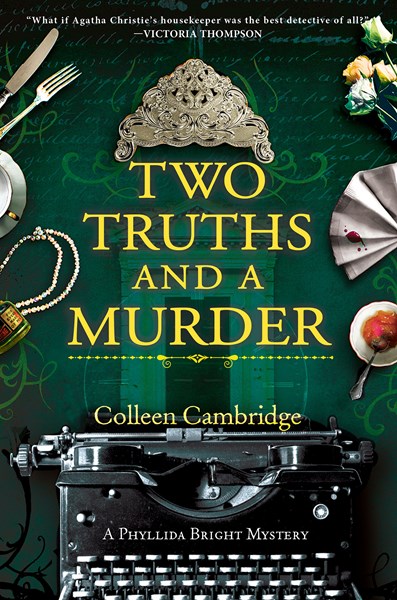Free after several decades in prison and now a resident of a high-end retirement home, Carol fears that her presence there will evoke a range of emotions in her peers, including fear, curiosity, and hostility. And she’s right. Carol’s history as a serial killer does come to light, exposing her past to the other seniors. But when a fellow resident dies—he turns out to have been a former police commissioner—Carol realizes that many of the occupants also have a past in law enforcement, some more sordid than others. Suddenly, the burden to prove her innocence falls on her shoulders, along with some help from a few of her new-found law-enforcement friends. In this winning mixture of humor and seriousness, baking and bingo, Carol does her very best to end up on the right side of justice, even if she has to commit murder to stay there. A great choice for book-group discussions.
Brian Kenney
This fifth in the series featuring Queen Elizabeth as an amateur sleuth is even more credible, more captivating than its predecessors—and they were awfully good. It’s 1961, deep into the Cold War, and the queen is headed north aboard the royal train, along with Princess Margaret and their respective entourages, when one of the ladies-in-waiting claims to have seen a murder unfold from her carriage. Is this sighting for real or a case of ladies-who-drink-too much? The queen, along with her assistant private secretary Joan McGraw—she’s the thread who connects many of the books—takes on the possible murder, which then expands, threatening to spoil the queen’s state visit to Italy. (Here the action moves to the royal yacht, a delightful foray.) Bennett does a fabulous job of balancing the monarch’s role as head of state with her involvement in a tale that exposes the dark side of the post-war world. For fans of The Crown, the Marlow Murder Club series, Miss Marple, and Robert Lacey’s Majesty: Elizabeth II and the House of Windsor.
Full-on brilliant, this sojourn into the groves of academe evolves into something totally dark and absolutely compelling. MFA grad David Trent is hanging around Cambridge cafes, reworking his novel for the umpteenth time, and lying to his fiance. It doesn’t help that his upstairs neighbor is Silas Hale, a renowned author who poses as a mentor when in fact he is nothing less than a monster who takes delight in torturing emerging authors (quite literally. In one of the funniest/most horrifying scenes, he refuses to supply David with any heat, despite it being winter in Boston.) But when David wins an award for his debut novel, everything changes, and even Silas is forced into welcoming his neighbor into the literary scene, albeit begrudgingly. From there, the novel, and David’s career, really take off. But enough from me. I refuse to let any of this devilishly satiric plot escape. Why take the fun away from other readers? Comparisons to Donna Tartt, Jean Hanff Korelitz, and Patricia Highsmith are inevitable. On my list of the top ten Best Books of 2025, this novel needs to be shared with a whole range of readers and enjoyed in book groups. They’ll be grateful.
Set in 1903 Pasadena and told through the eyes of 18-year-old Ryunosuke “Ryui” Wada, who has recently arrived from Yokohama, Japan, this novel is rich in dualities. An orphan, Ryui is fascinated by the world around himself—including Jack, his talented roommate and photographer and Gigi, a beautiful seamstress. Trained as an artist, Jack manages to find work in Pasadena’s art community as an apprentice, a job that takes him all over town. “In America, or perhaps especially in California, people could be transformed into anyone they dreamed of being.” Pasadena is rife with cultural appropriation; one of the personas Ryui encounters involves young white women re-creating Japanese culture, “which made me feel uneasy and confused,” Ryui notes. But when he and Jack are hired by Toshio Aoki, Pasadena’s best-known Japanese artist, to recover a missing painting (“I could be the first Nipponese detective in this country,” crows Jack) they willingly enter a world where danger abounds and real historical figures have a role. Poignant, marvellously well imagined, and deeply moving, this latest from Hirahara, author of the Edgar Award-winning Mas Arai series, and more recently the writer of Clark and Division and Evergreen, is sure to engage fans of historical fiction.
Cordelia West lives a pretty simple life. A devoted young Dallas Public librarian, she likes to keep her past just that: in the past. This includes her mother, a former alcoholic, who pretty much wrecked her childhood (they’re now on better terms). But when she receives a letter from great-aunt Penelope—a relative she has never heard of—Cordelia can’t ignore it. She’s been named sole heir to Penelope’s estate back in their hometown of Sarsaparilla Falls, Texas, a place she has assiduously avoided the past few decades. Turns out her inheritance pretty much consists of the Chickadee Motel, which the will stipulates can’t be sold until all residents leave or pass away. So off she goes to Sarsaparilla to see how she can rid herself of these tenants. Cordelia is savvy, and soon after arriving, she figures out the motel is a brothel, with three over-60 sex workers—Daisy, Arline, and Belinda Sue—AKA the Chicks, all eager for Cordelia to sign on as madam. This is the backstory, which is absolutely delightful, but it’s just a launching pad for the rest of the novel, which features extortion, accidental murder, poisoning, blackmail, corrupt developers, a beguiling romantic subplot, and so much more. Lane has created a fascinating world populated with extraordinary characters. Here’s hoping we all meet again.
Quirky and quick-witted, this second mystery in the Old Juniper series manages to be both action packed and full of the rich details that make up small-town life. Madeline Brimley is back in her hometown of Enigma, Georgia (“A little do-nothing town in the worst part of the third-worst state in the country”). A former actor, Madeline inherited her aunt’s home/bookstore and has no problem making new friends, although her bestie would be Gloria Coleman, the Episcopal priest who lives right across the street. When a corpse is found in the front yard of the bookstore, of all places, it turns out to be that of the rich and nasty Bea Glassie. And while no one in town can stand Bea, it’s Gloria who takes the heat for killing her and ends up in the slammer—while Madeline and friends are cavorting about town, interviewing suspects, cooking dinner, and in general living it up. Madeline even manages to get herself a boyfriend (a poet and horticulturalist. How cute is that?) Gradually the mystery starts to fall in place, characters step up to their roles, and the world eventually settles back into a familiar place.
Not a mystery, but plenty mystery-ish, this grand mixup of history, romance, time travel, St. George and the Dragon, Edward I, and, of course, love, is something to be savored, read in big gulps, and given over to the occasional tear. George’s mundane, twenty-first century life (crabby ex-boyfriend, job as dog walker, spiders ruling his apartment) leads to one thing: stress. Until he falls through Earth, landing not far from home, Greenwich Park, but far away in time (1300). But all isn’t so rosy; most of his fellow residents are all too eager to give George a beating, starve him, and stare at his self-drying Reebok shorts. But things change: George meets up with the charming Simon, and together they create a normal, modest life. Until George is summoned to meet the King and a dragon to boot. A lovely meditation on love and the struggles therein, this is a book readers will enjoy returning to again and again.
A charming novel with community at its heart. Arial Mayes Kingston has inherited a guest house in Monterey, California. Only in her mid-twenties, Arial turns to the one thing she knows how to do well: walk and sit dogs. O.K., so she is able to drum up only one client: the very handsome Golden named Monty (fans of Laurien Berenson and David Rosenfelt will enjoy meeting Monty). But she is able to make new acquaintances in the neighborhood while walking about with Monty, and Balzo spends plenty of time on character development. In fact, we’re nearly a quarter of the way through the book before a male corpse shows up, discovered, of all places, in the floorboards beneath Arial’s guest house. Fortunately Arial is in the clear—she hadn’t even moved to California when the body had been buried. But boy, talk about an incentive for gossip. Between the local book group, the vet, the neighborhood detective, and several more, we have enough speculation to keep the questions of who killed the victim and who buried him very much alive. When the murderer is finally revealed, it is truly a shock worth waiting for. Looking forward to more from Arial and Monty
It’s a big day for both Bridget Keller and her old family friend Jimmy Maguire. Jimmy’s being released from notorious English prison Wandsworth, having served decades for the murder of his childhood friend Providence. And Bridget, Providence’s older sister, is on her way to the prison gate to meet Jimmy and kill him. But things aren’t quite right for the attack, so Bridget puts it off…and puts it off…while she tails Jimmy as he visits old haunts, planning to kill him at every stop. As we journey with the ill-fated pair, readers look back at Bridget and Jimmy’s childhoods. Both have been abandoned by their mothers, Bridget physically when her mother took off, Jimmy emotionally as he survives life with his alcoholic mother; “the mister,” an abusive man whom Jimmy just KNOWS isn’t his father; and his small-time-criminal brothers. Nobody expects good from a Maguire. But as readers come to know Jimmy from his friendships, efforts to escape a life of crime, and sometimes-sparkling inner thoughts, it becomes harder to view him as just a criminal. Solid twists add to the emotional uncertainty to create a thought-provoking look at intersecting tough lives and longings for love.
Phyllida Bright, Agatha Christie’s long-standing housekeeper, close friend, and—with Agatha’s permission—sometime sleuth takes on a local case involving multiple murders. Invited to a dinner party, she’s been asked to help determine whether one of the husbands is guilty of infidelity (he isn’t), but instead observes as the obnoxious Genevra Blastwick, the complete opposite of her shy sister Ethel, forces everyone into playing Two Truths and a Lie, and she herself is quick to claim as one of her truths that she once witnessed a murder. Fact or fiction? In either case, her claim garners her plenty of attention—these days, Genevra would be an influencer of some sort—but it’s not necessarily the attention she wants, as the next morning, reclusive Ethel is discovered to have been run over by an automobile while walking home from the party. Has the murderer killed the wrong sister, “offing” sweet Ethel when they meant to murder big-mouthed Genevra? Set entirely in the countryside, with the supportive Agatha in the background, this novel sees Phyllida taking on an even greater role as an amateur sleuth, with many in the community, especially the service workers, turning to her for help. Add to all this a burgeoning romance that will knock Phyllida and many readers off of their feet, and you have all the makings of one of the best cozies of the year.

